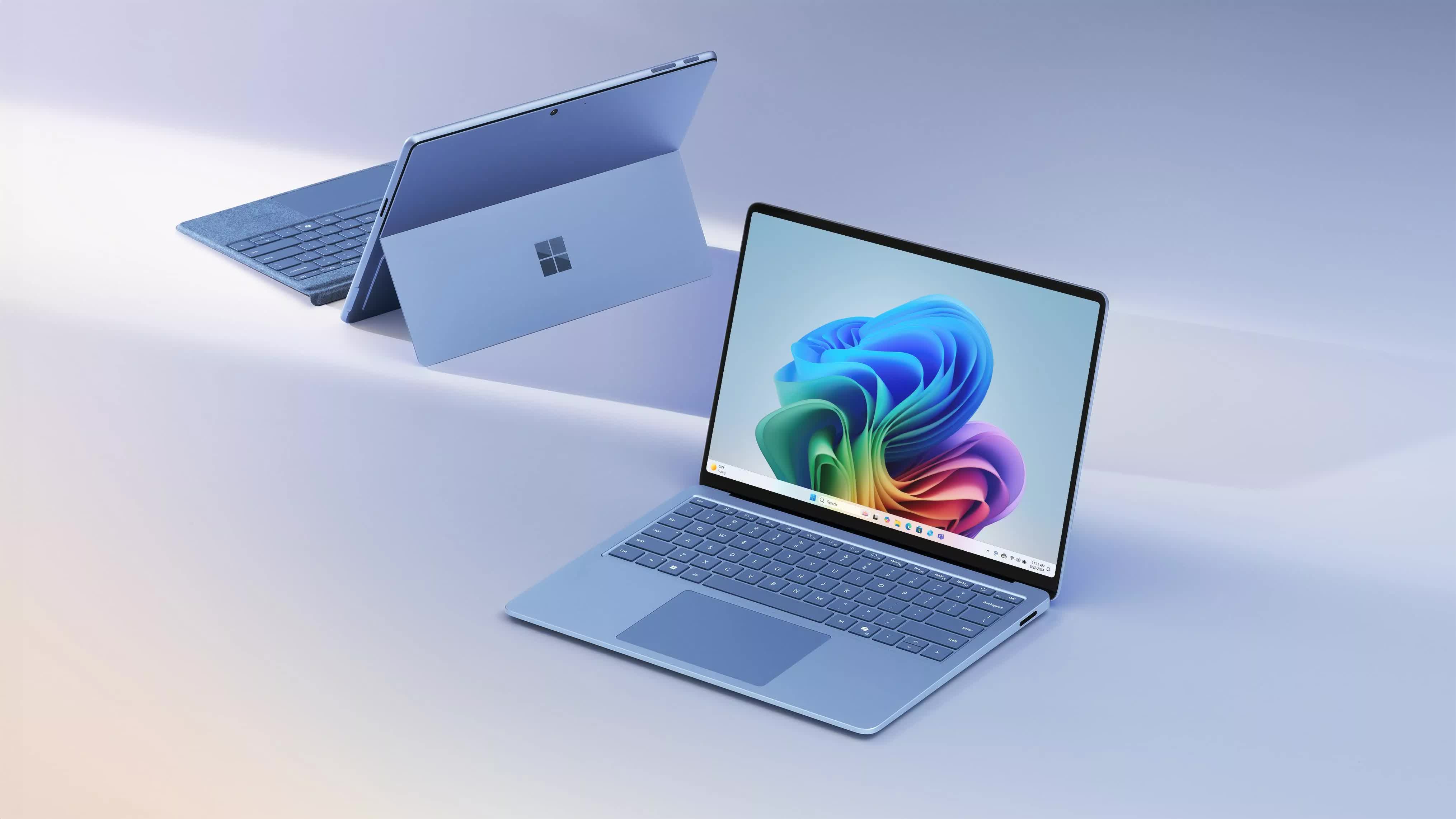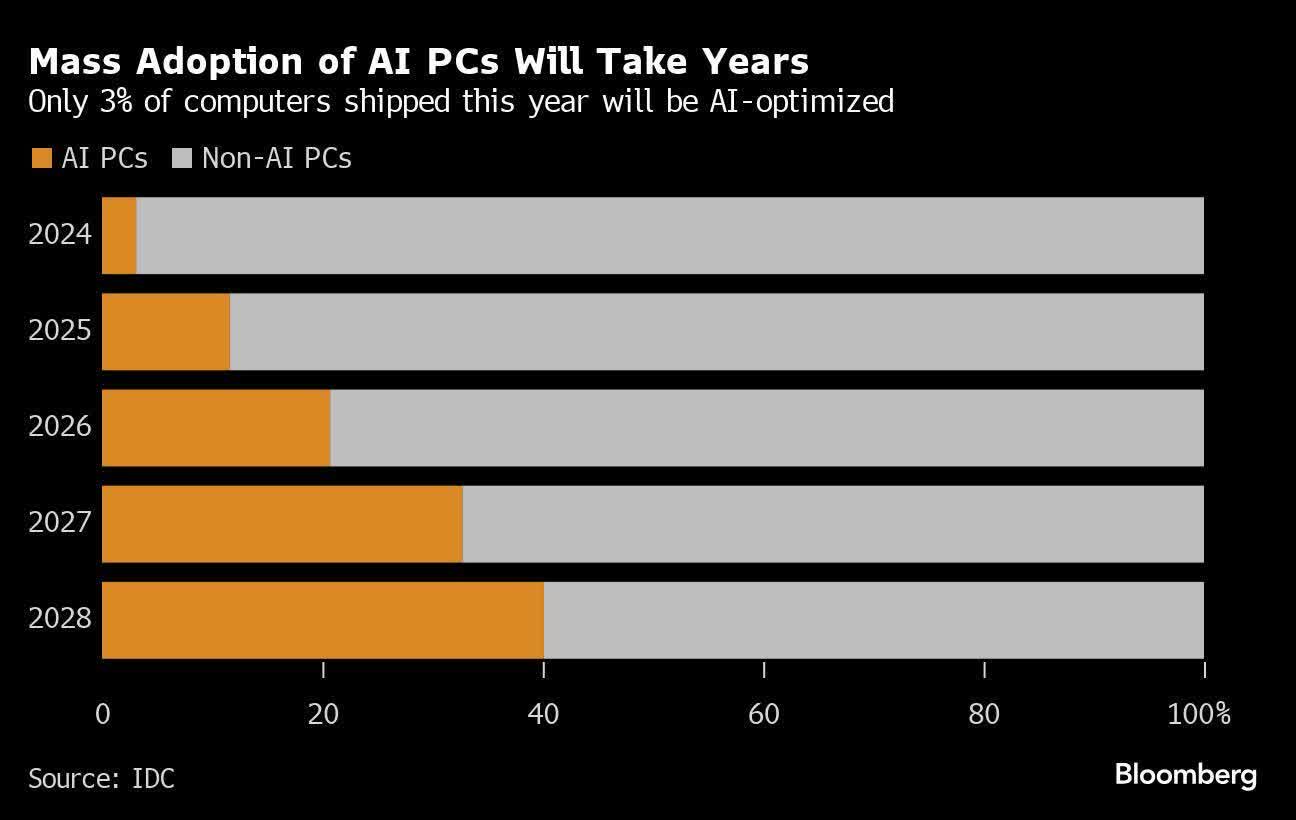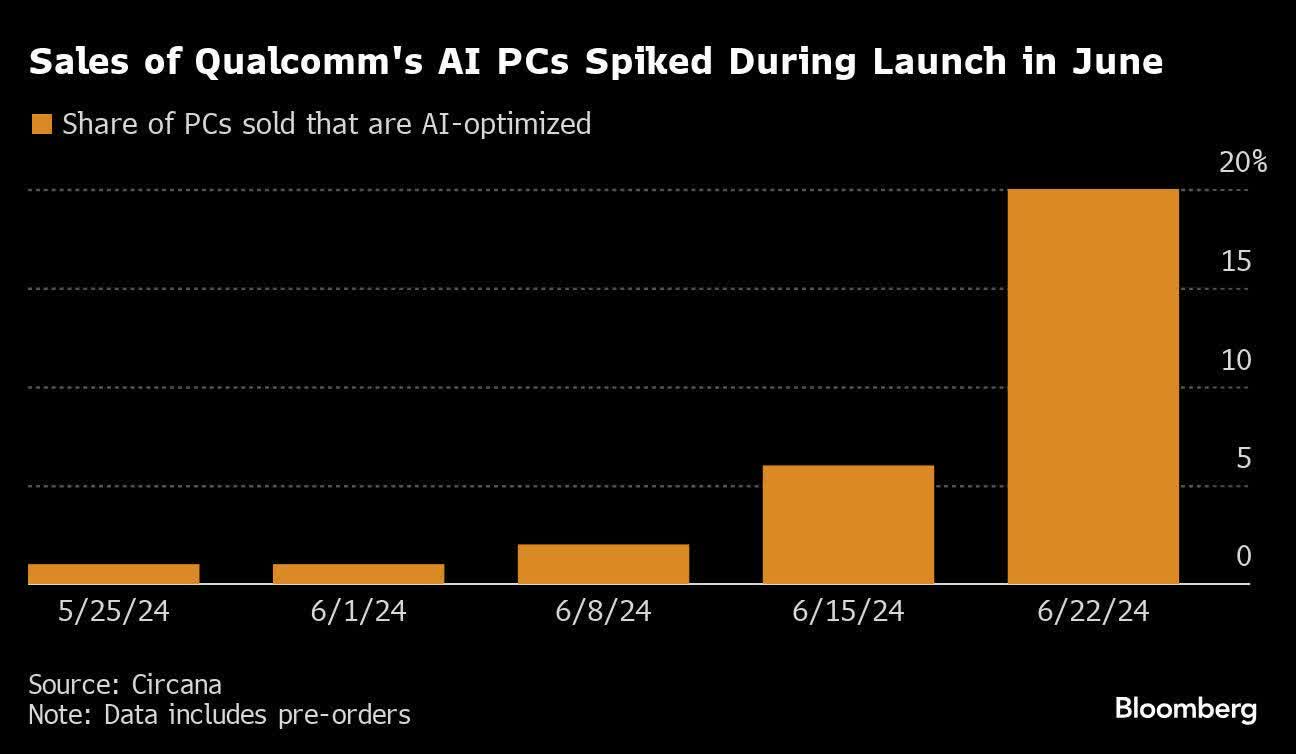The big picture: Tech giants are pushing onboard generative AI as the next big reason consumers upgrade their devices. However, analysts remain cautious of the technology, as software applications utilizing it are slow to materialize. AI also threatens to overshadow the other major shift from Microsoft's attempted push into Arm – increased battery life.
Despite the resources tech giants have recently poured into AI PCs, IDC data suggests their spread into the market will take years, and developers are slow to utilize them. Generative AI's true value remains uncertain, and controversies over reliability and copyright haven't faded.
The analyst firm estimates that only three percent of PCs shipped in 2024 will meet the AI PC specifications defined by Microsoft and Intel. The number could reach 40 percent by the end of the decade. The companies are pushing for new devices to include neural processing units capable of at least 40 TOPs (trillion operations per second) to handle generative AI workloads locally instead of through cloud services.
Intel's Lunar Lake and AMD's Strix Point processor lineups will join the trend when they launch later this year. Furthermore, Apple will bring the technology to Macs, iPads, and high-end iPhones in late 2024. However, Microsoft and several laptop vendors launched the biggest drive for AI PCs last month using Qualcomm's Arm-based Snapdragon X CPUs.
The new products aim to transition Windows to the Arm instruction set similar to how macOS switched to Arm with Apple Silicon, bringing power efficiency and battery life improvements. Early reviews of the Snapdragon systems note that they can last the better part of a day on a single charge. Techsponential analyst Avi Greengart says battery life, not AI, is Snapdragon X's biggest selling point.
However, the switch to Arm has naturally introduced software compatibility hurdles that developers will need time to overcome. Moreover, developers might be cautious toward onboard AI. Sources told Bloomberg that Adobe, Salesforce, SentinelOne, and other companies turned down a request from a major PC maker to update their software for onboard generative AI before the Snapdragon X launch. Adobe has heavily invested in cloud-based AI.
Text and image generation are currently the most famous generative AI applications, but both face broad criticism regarding accuracy and copyright. Other proposed uses include automatic translation, image upscaling, and digital assistance. Microsoft delayed the launch of a keystone AI feature, Recall, after severe security concerns were raised.


